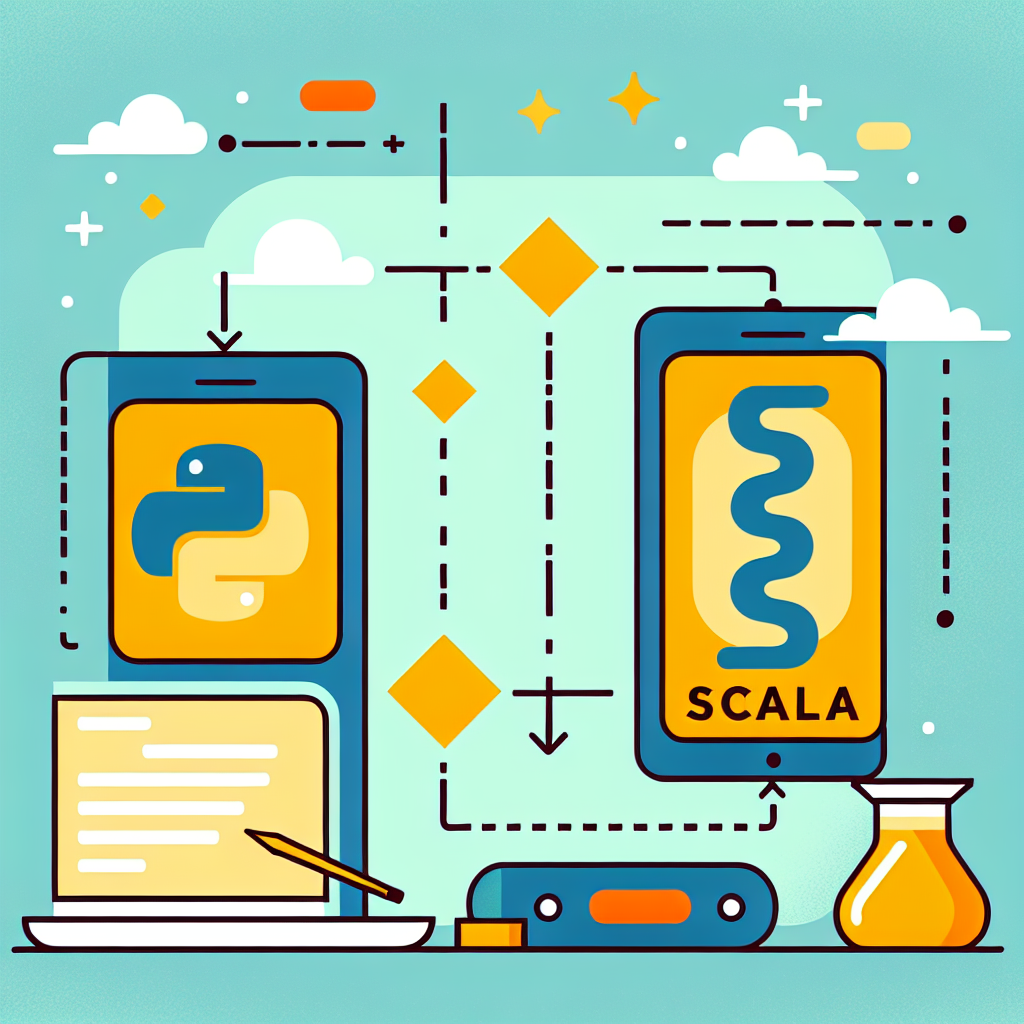Convert Python to Scala Effortlessly | Try Our Tool Now
Effortlessly convert Python code to Scala with our innovative tool. Boost productivity and streamline coding processes. Try Python to Scala conversion now!
Source Code
Converted Code
Output will appear here...
Transform your code effortlessly with our Python to Scala converter tool. Seamlessly migrate from Python to Scala, enhancing performance and scalability for your projects. Ideal for developers looking to leverage Scalas functional programming capabilities, this tool ensures accurate syntax translation and boosts productivity.

Python to Scala Conversion Tool Link to this section #
The Python to Scala conversion tool is designed to facilitate seamless code translation for developers transitioning between these two powerful programming languages. This tool is particularly useful for those seeking to leverage Scala's functional programming capabilities while maintaining the simplicity of Python.
Key Features Link to this section #
- Automated Translation: Quickly convert Python syntax to Scala, minimizing manual rewriting efforts.
- Syntax Mapping: Supports Python to Scala syntax mapping, including common data types and control structures.
- Code Optimization: Ensures translated code is efficient and adheres to Scala's best practices.
Benefits Link to this section #
- Efficiency: Reduces time spent on manual code conversion, allowing more focus on development.
- Accuracy: Minimizes errors during translation, ensuring reliable code performance.
- Learning Aid: Helps developers understand Scala's syntax by comparing it directly with Python.
Usage Link to this section #
- Input Python Code: Paste your Python code into the tool.
- Convert: Initiate the conversion process.
- Review Scala Output: Check the translated Scala code for accuracy.
Example Conversion Link to this section #
Python Code Link to this section #
def greet(name):
print(f"Hello, {name}!")
greet("World")
Scala Equivalent Link to this section #
def greet(name: String): Unit = {
println(s"Hello, $name!")
}
greet("World")
Related Topics Link to this section #
- Functional Programming: Explore Scala's emphasis on functional programming paradigms.
- Type Safety: Understand the benefits of Scala's strong type system.
- Interoperability: Learn about integrating Scala with existing Java ecosystems.
For more on Scala's features, visit Scala's official documentation. To deepen your understanding of functional programming, consider this guide by Martin Fowler.
By utilizing the Python to Scala conversion tool, developers can seamlessly transition between these languages, enhancing their coding efficiency and broadening their programming expertise.
Frequently Asked Questions
What are the main differences between Python and Scala?
Python is a dynamically typed language known for its simplicity and readability, making it ideal for beginners and rapid prototyping. Scala, on the other hand, is a statically typed language that combines object-oriented and functional programming paradigms, which is particularly suited for complex, scalable applications. Scala's strong typing system helps catch errors at compile-time, whereas Python allows more flexibility at the cost of potentially encountering runtime errors.
Is it easy to transition from Python to Scala?
Transitioning from Python to Scala can be challenging due to differences in syntax and programming paradigms. However, those with a solid understanding of functional programming concepts and experience with Java (since Scala runs on the JVM) may find the transition smoother. Learning resources and community support can aid in overcoming the learning curve.
Why would a developer choose Scala over Python?
A developer might choose Scala over Python for several reasons: Scala's ability to handle concurrent and distributed systems efficiently, its strong type system, and its seamless interoperability with Java. These features make Scala a preferred choice for projects requiring high performance, scalability, and reliability, such as in big data processing with frameworks like Apache Spark.